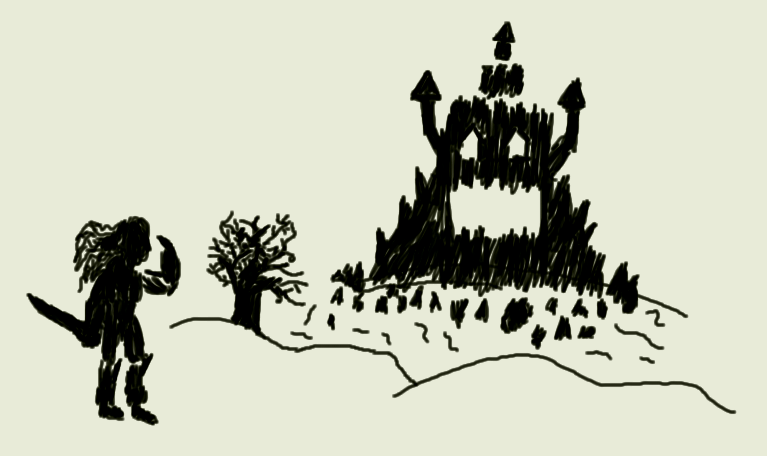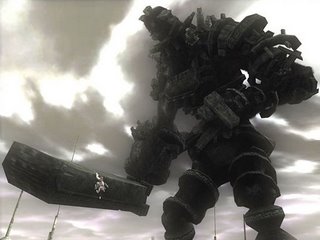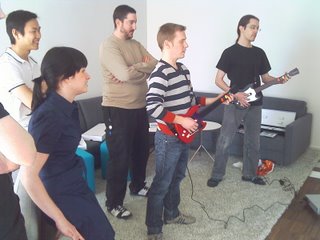I was at a Halloween party this year. In fact, it was on the 9th of this month, hence "belated." Actually, given the lateness of this post, the title might as well read "Belated post about a belated Halloween party," but that's quite a mouthful.
I have a colleague at work who doesn't separate plan and execution. It usually makes for fast results, but sloppy coding. I didn't realize that this mentality carries over to his leisure time, so when I hypothetically mentioned "Halloween" and "party" in the same sentence, I was instantly a founding member of the planning committee of a Halloween themed office party. I usually don't even go to parties, and when I do I leave early, but now I not only had to co-arrange something that I had little to no experience of, I also had to stay all night to clean up afterwards. I wasn't exactly looking forward to it, but I was prepared to give it a shot just as an experiment.
The committee consisted of me, my colleague and three members of the opposite gender. We had a couple of rather boring meetings, during which I usually felt I had nothing to add, and just sat around and listened. The others decided that at least everyone in the committee should wear costumes. I was strongly opposed, so it was suggested that if you didn't wear a costume, you couldn't have any alcohol. This seemed like a perfectly adequate compromise to me, since I despise most alcoholic beverages and hadn't planned on drinking any at the party anyway.
Someone had the cool idea to show black and white horror movies on our videoconference projector, naturally muted so not to interfere with the obligatory disco music. I downloaded a few classics, and then realized that most of them tend to have drawn out dialogue that serves practically no purpose at all if you're watching without sound. Plus, it was supposed to be a Halloween party, so people would expect to see monsters on the screen, not some stuffy old men sitting around and talking. So I edited a couple of the films to make my own Halloween versions of them, leaving only the monster scenes. The Halloween cut of Plan 9 from Outer Space was roughly 10 minutes, while my cut down version of Frankenstein was 40 minutes, which I happen to believe speaks volumes about the quality of both films.
And so, the day in question arrived. It was time for my experiment to play out. This was to be my first full party, with no chance of chickening out; the complete experience.
That very morning, our CEO announced that he was being replaced. One of the ladies in our planning committee suggested that we tone down the Halloween aspect of the party. She wasn't in a very festive mood anymore, since she had apparently worked rather closely with our now former CEO; they even had adjoining offices. Still, the show must go on.
I helped hauling the booze, when suddenly there was a slightly surreal moment where another of the girls told me that she had had surgery that morning and was tired, ill and in pain, and couldn't help with the carrying, and that I could tell the others whatever I wanted. I didn't know what to make of it, and was in the middle of carrying stuff anyway, so I just kept on perplexedly. Later, she ignored her pain enough to come down to the kitchen, only to burst out in a fit about how the chips were disgusting and she didn't feel like partying, and walk off. I explained to my colleague about the surgery, since I realized her outburst must've looked like an unprovoked hissy fit. I later gleaned from conversation that he took her to McDonald's to see to her blood sugar and greatly improve her mood. He's a people person.
The planning paid off. We had a nice lounge area with the black and white classics as backdrop and conversation starter, the kitchen packed with booze and pie, and a disco corner with a quite professional sound and lights system, and a smoke machine. Add some candles and decorations, a few party hats (witch's hats of course), and you had a rather pleasant Halloweenish party mood. The soon-to-leave CEO even came by and gave us our blessing by helping himself to some chips and wishing us a good time. Our co-workers laughed at the silly black and white monsters of the silver screen, a few guests came in costume, and soon the bad news of that morning seemed forgotten.
Then, the DJ played an ABBA song. Not just any ABBA song, mind you, but Lay All your Love on Me, which I happen to think is brilliant. So I did the unthinkable. I danced. True to my word, I hadn't put on a costume and thus hadn't had anything to drink but Schweppes (which really is refreshing, thanks Frasier!), but I was still committed to my experiment and trying to get the full experience. Plus, I've always liked music, I like moving to music, and I don't have a problem doing it among other people. I just don't have the energy to go out and do it. This party was at my office, so I never actually had to go anywhere. I jumped around a little, mingled, talked -- or rather tried to hear other people over the blaring music -- and I was only a little bored.
After a while, I noticed that half of the party committee was missing, so I went looking for them. Two of the girls were sitting at their desks, talking to a few female co-workers. It became apparent that the third girl wasn't in a partying mood either. In fact, she wanted to go home and complained that she didn't like parties anyway, and that it was a mistake to be in the committee in the first place. I told her that if anyone shouldn't be in the committee, it was me. Surgery girl and I promised that we would cover for her, but she eventually decided to stay anyway, probably out of guilt.
Since talking was practically impossible with all the noise, I went back to dancing. It was fun to watch people move, and trying to match their moves. I noticed that girls who try to look cool on the dance floor actually succeed, while guys who try to look cool fail miserably. Guys, move as little as possible. Girls, do whatever the heck you want, it all looks hot. I know that should probably be common knowledge to everyone else, but then why did the guys looks like jackasses? Oh right, alcohol. Also, another word of warning. I know smoke machines are fun, and they add a lot to the mood. I was guilty of hitting that smoke release button a few times too often myself. The problem is, it's actually smoke. Smoke detectors do not see the difference between fire smoke and smoke machine smoke. They're not fire detectors, they're smoke detectors.
Intelligent readers have probably inferred by now that we set off the fire alarm. So what do we do? Turn up the volume and dance the night away, naturally. Not being under the influence, I eventually decided to check if anyone was doing anything about the alarm, since it didn't seem to be turning itself off any time soon. I had heard that the fire brigade had been called off, but still, the noise was pretty irritating. As I suspected, a few of the more responsible women at the party, including the friend of the CEO, were making calls and gaining access to the janitor's office. Content in the knowledge that three fully grown women were taking care of it and didn't seem to need any help, I made my way back to the kitchen, and only half-way there the alarm finally stopped. By that time, I was growing very bored with the situation. I decided to sit down in front of the movie screen, just zone out to the music and wait for the party to end so I could go home. Just three or four hours left now.
Suddenly, the music stopped. My plan was foiled! I went to see why, and it turned out that the CEO friend, the eldest in our party committee, didn't feel like babysitting us anymore. Toning down the party apparently hadn't worked, and no one seemed to be taking any responsibility but her, so she was calling it off completely. After we had repeatedly told them why the music had been shut off, and why they had to go home, our co-workers seemed to get it and grudgingly evacuated the premises. Thrilled, the three ladies and I cleaned up the party in record time. We actually had that kitchen cleaner than it ever was, chairs and tables back in their original places, before all the guests had fully left the office. I think we proved that party poopers can be really effective when they get the chance.
So I went home and slept. The party was kind of a bust, but I think my experiment was a success. At least I'm one experience richer.




 After lugging around 1000-page books on the subway for a few months, I've come to realize that it's not a practical solution in the long run. It's a hassle even when the weather's fine, so I'll probably give up when winter starts. The problem is that a book this big doesn't fit even inside my relatively large pockets, which means I either need to go about my daily life one-handed while fumbling with the book in the other hand, or get a bag to put it in. As much as I love and respect Joey, I don't share his love for man's bags, stylish though they may be.
After lugging around 1000-page books on the subway for a few months, I've come to realize that it's not a practical solution in the long run. It's a hassle even when the weather's fine, so I'll probably give up when winter starts. The problem is that a book this big doesn't fit even inside my relatively large pockets, which means I either need to go about my daily life one-handed while fumbling with the book in the other hand, or get a bag to put it in. As much as I love and respect Joey, I don't share his love for man's bags, stylish though they may be.







 Richard K. Morgan writes gritty, no holds barred sci-fi that feels as real as a kick in the nuts, and
Richard K. Morgan writes gritty, no holds barred sci-fi that feels as real as a kick in the nuts, and  Tony Ballantyne's
Tony Ballantyne's 
